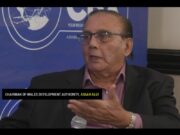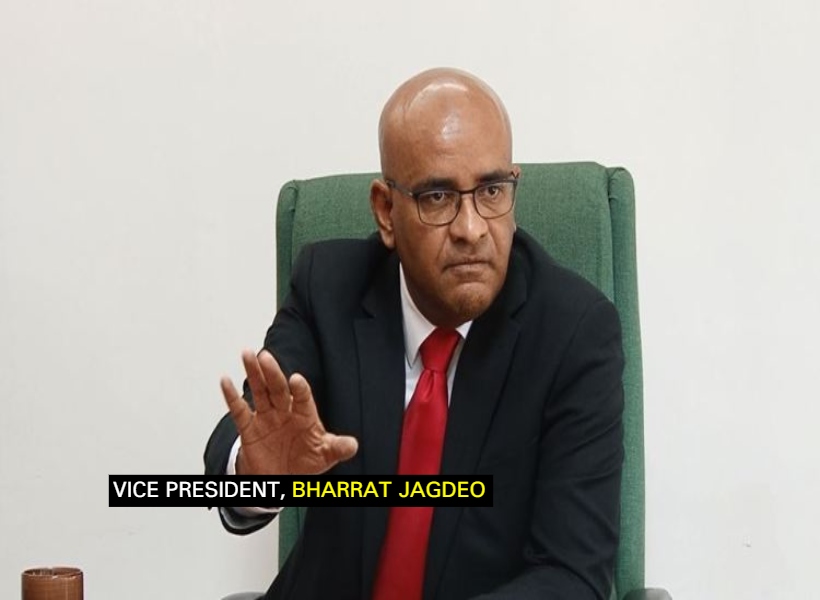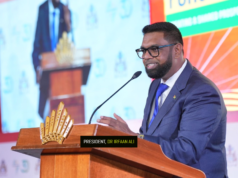Though it has been nearly seven years since Guyana is without a Petroleum Commission to provide independent regulation of the sector, one should not be fooled into thinking it is effective in keeping corruption at bay. This commentary was recently offered by Vice President, Dr Bharrat Jagdeo during an engagement with members of the local media fraternity.
Dr. Jagdeo’s remarks were made as a direct response to critics such as Chartered Account and Attorney-at-Law Christopher Ram. Ram was recently quoted in a section of the media bemoaning the government’s failure to get the commission in place.
Ram reportedly said, “The Government seems unwilling to set up an independent Petroleum Commission, and thereby remove the possibility of further secret deals and collusion between the politicians and the oil companies. One must not forget that the oil companies played along with (former Natural Resources Minister) Raphael Trotman in hiding from the public the so-called (US$18M) signing bonus and the 2016 (Stabroek Block) Production Sharing Agreement.”
Ram is also of the firm conviction that this state of affairs, along with the absence of critical reports on ExxonMobil’s local content performance and its production offshore, do not augur well for transparency and accountability as promised by the Ali administration.
Referencing Ram’s statements, Dr. Jagdeo said, “I can tell you of some countries with the worst corruption track record that have petroleum regulators that are supposedly independent. A Petroleum Commission is not a safeguard against corruption. It is utter nonsense to think so.”
The Vice President explained that the Petroleum Commission is expected to ensure all oil payments are received and receipts made public, have all licenses disclosed and ensure documents on its expenditure are not kept away from public scrutiny.
Dr. Jagdeo said the foregoing objectives are already being achieved with the implementation of the Natural Resource Fund (NRF) law. He explained that the law ensures oil receipts are published by Central Bank. The law also states that use of the oil money is to be disclosed and scrutinized before and after Parliament’s approval.
He said, “We also made a commitment that every agreement the Petroleum Commission would have done in place of the Natural Resources Ministry that all the licences would be out in the open. I told them that Liza One, Liza two, and Yellowtail Production Licenses must be out in the open. Also every environmental permit must be on the website and people must be able to compare it to what was done under the APNU+AFC and see the qualitative difference.”
Overall, the Vice President said the government understands the role and importance of a Petroleum Commission while noting that one would be in place soon. He noted however that the right model has to be developed and reassured that in the meantime, the sector is being transparently managed.











